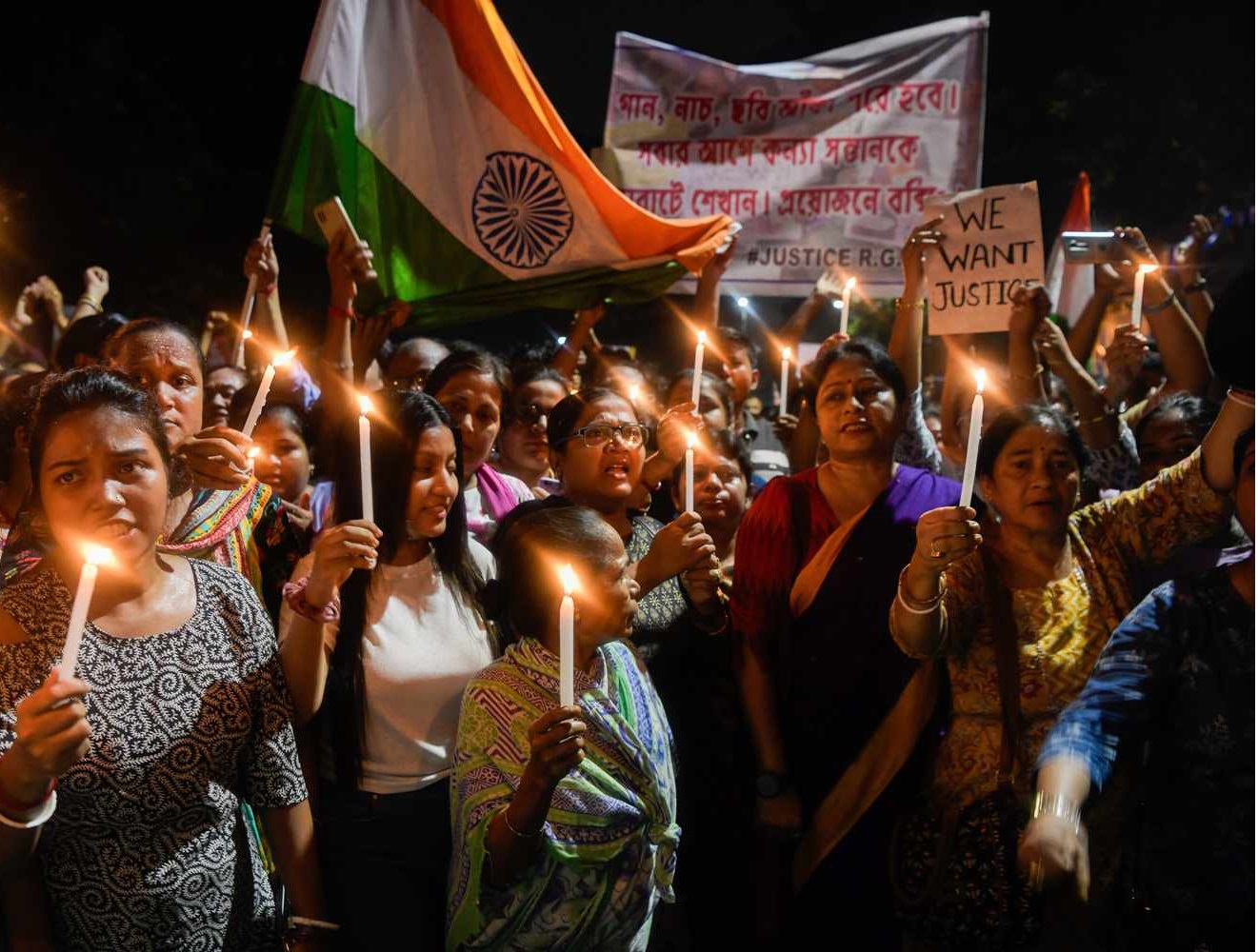By Lauren Prem
Ground protest, sometimes seem to be the only panacea to outright fundamental right violations in India. Expressing outrage against the ghastly Kolkata rape and murder case, men and women, especially women in large numbers hit the streets in Kolkata on the eve of the Independence Day, 2024. While the protests were initially planned to happen in college street and academy areas of Kolkata, it spread across the nation as many other cities stepped in to reclaim the night and highlight the safety issues that women still face in our country. However a small group of people also entered into the RG Kar Medical Hospital and college, vandalizing the hospital property and attracting attention in the news for its violent nature, taking away some of the attention from the otherwise well meaning and very impactful protests on ground.
Reclaim the night is a protest, having its roots in the late 1970s in the city of Leeds in England, that followed the Yorkshire ripper incident. The protest mainly begun and was fueled by women’s rage for imposing curfews on them, as a response to the brutal crimes happening to them. The fact that the focus lay on women’s conduct and not on rectifying the behaviors of unscrupulous men, enraged many women.
Later on, in the 2000s, the protest was not restricted solely to women or Leeds. Rather, it expanded to other parts of the world and protestors consisted of people belonging to all genders. Each incident reinforced this unique idea of protest – taking back the night or reclaiming the night and hence, became popular worldwide.
In the Indian context, the grave incident that happened to the woman doctor, preceding the Independence Day led to questioning the very purpose of celebrating Independence Day, considering the lack of freedom in the country. RimJhim Sinha, a social science researcher from the Presidency University in Kolkata, prompted the protest on Facebook stating her decision to spend her Independence Day reclaiming the night and fighting for the freedom of women. This gave birth to a new freedom movement for women in the country through this popular protest.
Against the backdrop of this protest which sought to serve as a reminder of the present safety conditions of women in the country, the protestors were surprised by the violence that took place in the RG Kar Medical college and hospital –the place where the doctor was raped and murdered. Miscreants fled the hospital and vandalized property to unleash the rage and demonstrate their disapproval regarding the way the case was being handled. Further, eye witnesses say that police vehicles standing in the vicinity were stone pelted.
As one side of the protest demonstrates violence, the other side signifies disheartenment and deep melancholy regarding women’s situation in our country. A young doctor, Pratyasha Das, reports that she had to get her male friends to accompany her to this protest due to fear of safety. She even highlights the inequality in the medical field by mentioning the stereotypical questions asked to her for choosing a career in the medical field – questions that are never asked to male doctors. Ironically, she had to worry about her safety while fighting for safety. Such is the sad reality of women in India – educated or uneducated.
We should strive to be a country which is truly independent and not just in the namesake, where women who comprise about half of India’s population can live, feel and move about as freely as men do.
Equality, safety, dignity and other cherished fundamental rights as per the Indian Constitution, can be enjoyed by a person only if they are alive. In this particular case, the right to life of the doctor was itself under threat. The constitution promises many rights, but the reality is that governments in India are still a far way away from ensuring that these rights are implemented on ground.
There is no dearth of schemes and laws to protect the rights of women. However, the current scenario provides us with no choice than to believe that laws are not sufficient to tackle these nightmares. To put it in another way, laws have failed to portray deterrence – the very foundational objective of criminal law. If a majority of the people choose not to follow the laws, the entire system will collapse.
On the one hand, each individual needs to be conscious of their actions and of how it will affect their fellow beings. On the other hand, we need systemic efforts to ensure that laws that exist don’t remain merely on the shelf but are actually implemented on ground. It shouldn’t take conscious shaking rapes or ‘reclaim the night’ in every city for the politicians in India to take women safety seriously.


